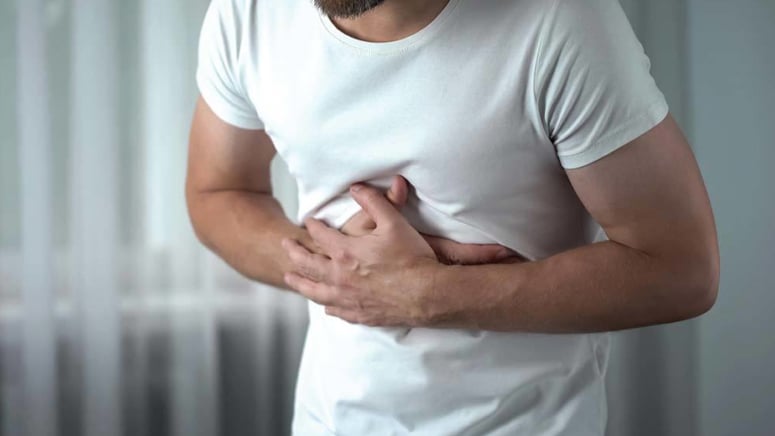What Is Stomach Ulcer?

A stomach or peptic ulcer is a sore [1] that develops in the digestive tract – the lining of the esophagus, stomach, or small intestine. Leakage of stomach acids or digestive juices irritates and damages the lining of the digestive tract, causing the sore to form. The most common cause of this condition is the H.pylori bacteria [2]. Overuse of anti-inflammatory pain relievers like aspirin can also lead to stomach ulcers.
This condition cannot be self-diagnosed, so it requires medical diagnosis after which your health practitioner will recommend the appropriate treatment method. Symptoms of a stomach ulcer can be similar to other digestive conditions; hence, laboratory tests or imaging are often required for a proper diagnosis. After starting treatment, symptoms may resolve within months.
Abdominal pain is a common symptom [3] of this condition. The pain usually occurs on the upper middle part of the stomach, right above the navel. It can feel like your insides are burning, or gnawing, and it may radiate to your chest or back. Doctors usually recommend a diet for ulcer patients so that they don’t worsen the condition and cause heavy bleeding. The common sign of a bleeding sore in the digestion tract is dark-colored feces. Patients that complain of seeing dark red or maroon-colored blood in stools are likely to suffer bleeding ulcers. If bleeding continues, it can also cause bloody vomit that looks like coffee grounds.
The high acid content in the stomach puts you at significant risk of developing stomach ulcers. The overproduction of stomach acids allows a backflow into the food pipe, causing frequent heartburns or chest pains.
There are various treatment methods for this condition, which include medication and foods that can help decrease stomach acid production. If left untreated, peptic ulcers eventually heal, but there’s a high risk of a recurrence if the cause of the ulcer is not eliminated. Recurring ulcers puts you at significant risk of developing serious complications such as gastric cancer. Recurring ulcers are also the cause of severe bleeding in the wall of your stomach or intestine.
Now, let’s examine some common and effective treatments [4] for peptic ulcers.













